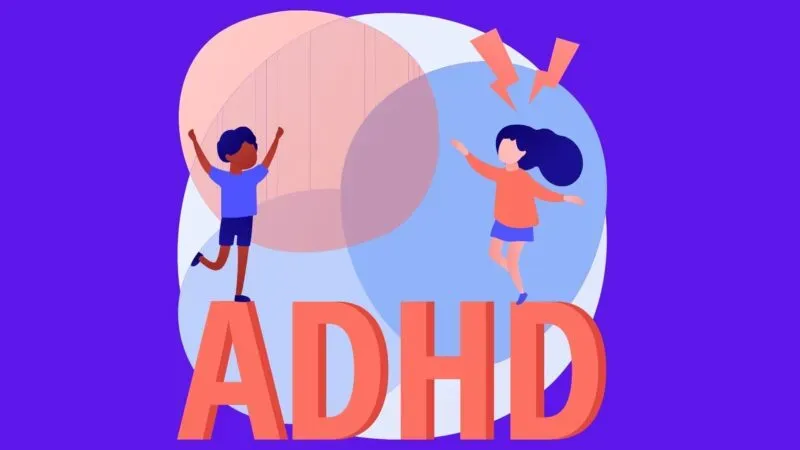Introduction
ADHD diagnosis is essential for understanding and managing Attention-Deficit/Hyperactivity Disorder effectively. ADHD is a neurodevelopmental condition that affects both children and adults, leading to challenges in attention, impulse control, and hyperactivity. It impacts various aspects of life, including academic performance, work productivity, and relationships.

An accurate ADHD diagnosis is the first step in getting the right support and intervention. Since ADHD symptoms can be similar to other conditions, a thorough evaluation is necessary to avoid misdiagnosis. This guide explores five key steps to achieving a precise ADHD diagnosis.
If you need professional support, consulting the best psychiatrist in Delhi can provide valuable insights and personalized strategies for ADHD. Consider Visiting:
1. Recognizing the Symptoms
The first step in diagnosing ADHD is identifying the symptoms. ADHD symptoms are generally categorized into three types:
- Inattentive Type: Individuals with this type often struggle with focus, forgetfulness, and difficulty following instructions. They may frequently lose items, miss deadlines, or appear disorganized.
- Hyperactive-Impulsive Type: This type is marked by excessive talking, fidgeting, restlessness, and impulsivity. People with hyperactive-impulsive ADHD may interrupt conversations, struggle with patience, or act without thinking about consequences.
- Combined Type: A mix of both inattentive and hyperactive-impulsive behaviors, which is the most common form of ADHD.
For a diagnosis, symptoms must be persistent for at least six months and occur in multiple settings such as home, school, or work. The symptoms should also significantly interfere with daily life.
2. Consulting a Licensed Specialist
If ADHD symptoms are noticeable and persistent, consulting a licensed mental health professional is the next step. A proper diagnosis should be made by specialists with expertise in ADHD, such as:
- Clinical psychologists
- Psychiatrists
- Pediatricians (for children)
During the consultation, the specialist will gather medical history, observe behavior, and discuss concerns with parents, teachers, or caregivers if the diagnosis is for a child.
3. Following Standardized Diagnostic Criteria
Healthcare professionals rely on established criteria for ADHD diagnosis. The Diagnostic and Statistical Manual of Mental Disorders (DSM-5) is widely used to assess ADHD. According to DSM-5 guidelines, a person must exhibit several symptoms for at least six months, with clear evidence of impairment in two or more settings.
For more information, refer to the Centers for Disease Control and Prevention (CDC) guidelines on ADHD diagnosis.

4. Conducting Behavioral Assessments and Tests
ADHD diagnosis is not based on a single test but rather a comprehensive evaluation, including:
- Behavioral Rating Scales: Parents, teachers, or individuals may complete questionnaires evaluating attention, impulse control, and hyperactivity.
- Neuropsychological Testing: Cognitive tests help assess attention span, memory, and problem-solving skills.
- Observation Reports: Professionals may directly observe the individual’s behavior in structured settings.
Standardized ADHD assessments, such as the Vanderbilt Assessment Scale and Conners Rating Scale, are commonly used for evaluating ADHD symptoms.
5. Ruling Out Other Conditions
Several conditions share symptoms with ADHD, making it essential to rule out other possibilities before confirming a diagnosis. These may include:
- Anxiety disorders (which can cause restlessness and difficulty concentrating)
- Learning disabilities (that might lead to poor focus)
- Sleep disorders (which can impact attention and energy levels)
A thorough medical and psychological evaluation ensures that the symptoms are due to ADHD and not another underlying condition.
Role of Medication
While therapy and behavioral strategies play a significant role in ADHD management, medication is often considered an additional tool for symptom control. However, Treatment plans are highly individualized, and many individuals benefit from a combination of behavioral interventions, lifestyle changes, and structured support systems. It is essential to consult a specialist to determine the most suitable approach based on personal needs and medical history.

Conclusion
Obtaining an accurate ADHD diagnosis is a crucial step in understanding and managing the condition effectively. The process involves recognizing symptoms, consulting specialists, following diagnostic criteria, undergoing behavioral assessments, and ruling out other conditions. A correct diagnosis allows individuals to receive the necessary support, strategies, and accommodations to improve their quality of life.

